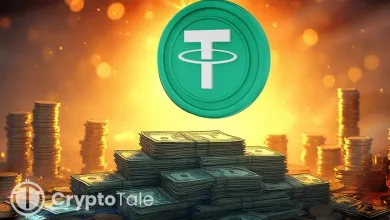Philippines SEC Cracks Down on 10 Offshore Crypto Exchanges in Regulatory Push

- The Philippines SEC has flagged 10 offshore crypto exchanges for operating without licenses.
- New regulations require crypto platforms to register under Memorandum Circulars No.4 and No.5.
- The SEC warns unlicensed platforms increase AML risks and expose the country to gray-listing.
The Philippines is escalating its crypto crackdown. The country’s Securities and Exchange Commission (SEC) released a public advisory targeting ten major offshore crypto exchanges. The move adds new urgency to Asia’s push for digital sovereignty and tighter local control over online finance. This comes after Binance was geo-blocked in 2024. Now, other exchanges like OKX, Bybit, and Kraken are under direct scrutiny. The SEC warns that these platforms continue to operate in the country without local authorization.
Ten Offshore Exchanges Named by the SEC
The SEC flagged ten unregistered digital asset service providers. These include OKX, Bybit, Mexc, Kucoin, Bitget, Phemex, Coinex, Bitmart, Poloniex, and Kraken. According to the SEC, these platforms are operating illegally by offering trading and derivative services to Filipino users.
They do not have a license under Memorandum Circulars No. 4 and No. 5, which came into effect in July 2025. These rules require any platform offering crypto services in the Philippines to register locally and meet strict compliance obligations.
The SEC noted these firms remain accessible and are actively promoting their services within the country. “They continue to market crypto-asset services to the Philippine public without the required license,” the advisory stated.
Although only ten names were listed, the regulator made clear that the list is not final. “Other platforms offering similar services without registration are also in violation,” the SEC added.
Broader Goals and National Risk Concerns
The regulator’s action goes beyond investor protection. It signals a larger national policy shift around crypto governance and financial surveillance. The SEC warned that unlicensed platforms fall outside the country’s Anti-Money Laundering Act (AMLA) framework.
This means these entities lack obligations to conduct customer due diligence, keep records, or report suspicious transactions. According to the SEC, this regulatory vacuum could expose the country to financial crime and international scrutiny.
A key fear is being placed on global AML watchlists. “These unregistered operations heighten the country’s vulnerability to gray-listing,” the SEC noted. To mitigate this, the agency may pursue cease-and-desist orders, criminal prosecutions, and partnerships with internet providers to block access.
Related: EU’s MiCA Authorizes 53 Crypto Firms; Binance, Tether Left Out
This approach mirrors enforcement trends in other Asian countries. Singapore, South Korea, and Thailand have also introduced strict frameworks to bring digital assets under national regulation. Each country seeks to protect capital flows while encouraging local innovation.
While the Philippine SEC insists on complying with the law, there has been a backlash in the crypto community. They are calling for clearer regulations and a more collaborative licensing approach. The industry participants assert that this type of model can assist in finding a balance between creativity and supervision.
This regulatory nationalism could affect how and where crypto platforms operate in the future. Unlicensed exchanges may no longer be seen simply as legal risks, but as liabilities within sensitive geopolitical and financial systems. With crypto adoption rising and regulatory focus intensifying, the next phase may redefine access, compliance, and trust across borders.




